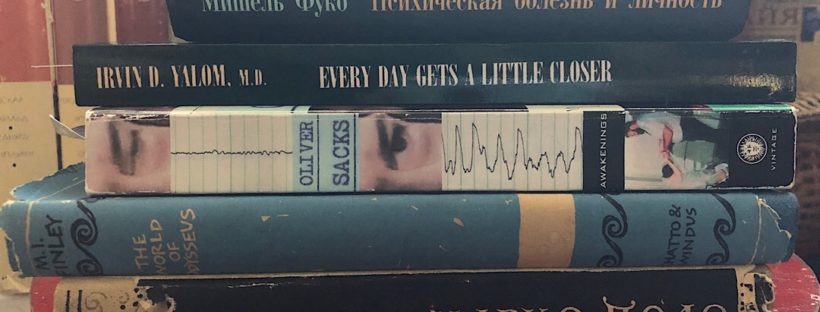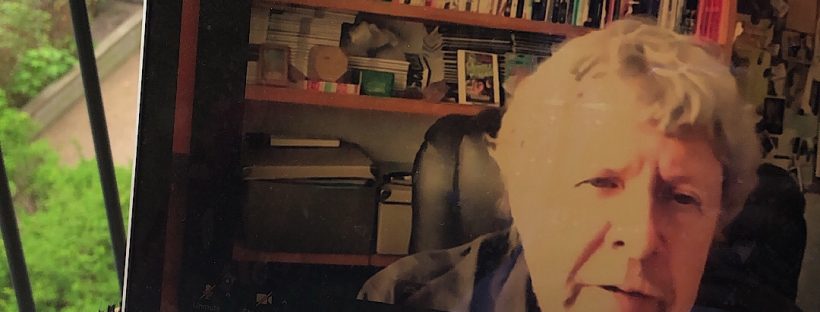I often read a few things in parallel. Currently it is:
- Irvin D. Yalom & Ginny Elkin: Every Day Gets a Little Closer: A Twice-Told Therapy – an interesting account of therapy sessions recollected both by the therapist and the client. I’m about 1/3 through with the book. Reads easy, but I have to make stops to process the process that is happening there. Yalom has been always associating first with the existential therapy for me.
- Oliver Sacks: Awakenings – collection of cases of how people who were victims of the 1920s encephalitis lethargica epidemic were treated with the new drug at the time – L-DOPA. Gives an insight about the specifics of the perception of time among people with Parkinsonism and many other things.
- Michel Foucault: Maladie mentale et personnalité – I’m reading it in Russian. But interestingly intersects with what Oliver Sacks writes about the influence of the institution on the personality. I’m half way through the book and made quite a few notes, and also noted quite a few other books that I would like to read. One of them has already arrived: R.D.Laing: The Divided Self.
- M.I.Finley: The World of Odysseus – I’ve been always fascinated by the ancient history, but also the adventure novels – I’ve read Homer’s Odyssey, and then R.Halliburton’s The Glorious Adventure – an almost contemporary try to revisit all the places Odyssey went. Am curious to see what the historian will tell me about it
- Henry H. Hart: Venetian Adventurer: Being an Account of the Life and Times and of the Book of Messer Marco Polo – reading it in Russian. Another interesting travelling around character and the world around him 🙂

